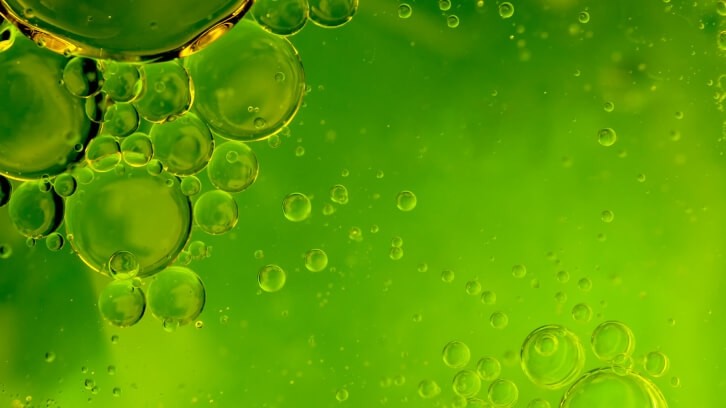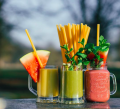ImperialOel on innovating within a shifting omega-3 market

Oliver Kromer, CEO of ImperalOel, underlines the importance of identifying sustainable solutions, explaining: “In the EU, the FDA recommends 250 milligrams of EPA and DHA per day. There are other recommendations that are even higher than that… so if you look at the global population and if every human being took that amount, then we wouldn't have a single fish left in the ocean.
“So, we cannot satisfy humans omega-3 demand with the fish we get in the ocean,” he stresses.
He says that the team’s current focus on vegan omega-3s and innovative format types would enable for their continued success within the challenging market.
The company was previously recognised by NutraIngredients for their innovation, winning the NutraIngredient Editor’s Choice award in 2015 for its omega-3 separating pouch, MarisMix OmegaPassion DHA.
Kromer highlights that the win enabled for valuable networking opportunities with new customers to demonstrate their recent innovations.
“I think it’s important to show customers that you're able to innovate and you're able to come up with new ideas. In order to be an attractive supplier, you have to be innovative.
“We are getting a lot of interest in our company and the products we can do. So it was definitely very valuable for us to receive the NutraIngredient award,” he adds.
Omega market
Kromer explains the current challenges: “The market is in a bit of a transition phase, I would say. We have a severe shortage for fish oils and exploding prices, which are about twice as high as they were a year ago.
“On the other hand, the vegan omega-3 algal oils are getting more affordable. There used to be a big gap between those and now they're really approaching each other and then they will a point when they’re at the same level. We also see that consumers are prepared to pay a significant premium for the vegan alternative, which we found quite surprising,” he adds.
He explains that there have been an increasing number of products launched in the vegan omega-3 category; a trend which has recently spread to mass market and retail store brands.
“This is definitely a focus area of ours and we certainly expect that to further grow in the future,” he asserts.
He says that the company has been developing its new formulations of vegan omega-3s using a blend of different algae oils with other vegetable oils to provide DHA, EPA, and ALA, as well as other omega-3 fatty acids.
“The microalgae are ultimately what the fish are eating in order to get their omega-3. So they are the original producer in the marine ecosystem. If you’re getting these omega-3s from algae, you’re essentially going directly to the source,” he emphasises.
He says algae offers a sustainable alternative to fish oil production, whilst sustainably certified commercial fisheries can also offer this due to the omega-3s mostly being sourced from the fish by-products.
Formats for the future
Kromer says that the omega-3 market is mostly made up of soft gel capsules, whilst ImperialOel have been working to innovate alternatives that still provide optimal taste with the nutritional benefit.
He explains that flavoured bottled fish oil liquids have been a household standard across Scandinavia, whilst increasing in popularity within the UK and other European countries.
“We have been promoting this concept of a bottled omega-3 oil for a couple of years now and we’re really seeing this gain traction. There are and larger brands in Germany for instance, that are selling hundreds of thousands of bottles per year of these liquid omega-3 oils.
“And I think one reason for the success of this format is that it's very natural. You don't have anything else but the oil as it is,” he emphasises.
He adds that this is also a preferred format by those who struggle to swallow capsules, such as children and the elderly.
“Another advantage is that, particularly for smaller brands, with these softgel capsules you typically have relatively high minimum numbers that these soft gel machines need to run. So these liquids offer more flexibility when it comes bottling.”
Yet, he says that oxidation susceptibility represents a key challenge when developing liquid formats, with soft gels largely protected from the atmosphere.
“This is why we invested in a special bottling system in order to make sure that the oil is not contacting the air during the bottling process and is not caught inside. As this can make quite a big difference in terms of shelf-life.
“Oxidation also causes the fishy tasting experience. So we have managed to overcome that and I think that’s also the reason why we are seeing a big interest in this category now,” he highlights.
NutraIngredients Awards
Entries are now open for the 2024 NutraIngredients Awards and this year the programme celebrates 10 years of championing the nutrition industry.
To acknowledge this significant milestone, we will re-instate our face-to-face awards event - winners will be presented with their trophies during an awards' celebration in Geneva on the 15th May 2024.
There are 14 categories of award to enter, but hurry! Entries will close on February 5th.





